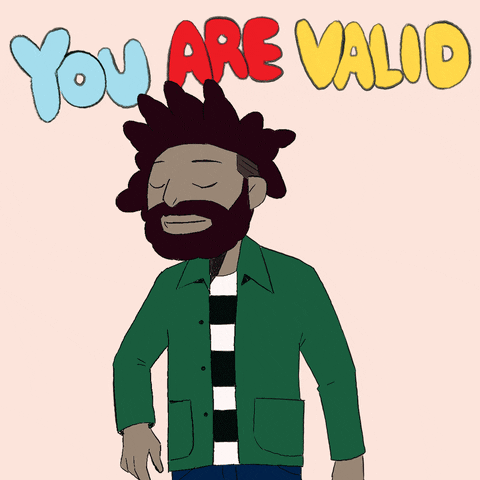This is part 1 of 3 of the “Validations and positive points” pathway from our Mental Health program designed to help employees have positive conversations about Mental Health
🤔 Poll
💡 What helps when you think you can’t help
In a 2011 study, participants had their stress response measured as they did a series of grueling mathematical tests.
One set of participants handed their tests to an exam supervisor who invalidated their experience with phrases like, “It’s really not that hard.”, “No one else is as frustrated as you.” or “There’s no need to get upset.”
Calculate Figure It Out by @foxadhd.
The other set handed their tests to an exam supervisor who validated their experience with phrases like, “Most of the others expressed the exact same feeling” or “Anyone would feel upset if they had to do this task.”
Remarkably, the validated participants experienced less stress even though everything else was kept the same. Their heart rate went down over the series of tests rather than up. Other markers of stress increased at a slower rate compared to the invalidated participants.
This is one of many studies that demonstrate the power of validations.
🎯 Even if you can’t change someone’s situation or protect them from their challenges, connecting through carefully chosen words might make them feel better and increase their resilience.
“You are valid”, Mental Health Love GIF by @IntoAction.
🧭 What validation actually is
Validation is a way of showing interest and confirming that someone’s thoughts, actions or experiences make sense and have worth.
We can validate people in lots of different emotional contexts. But as soon as someone shares a challenging experience or a difficult emotion, a validation is a useful first response because it:
✅ Allows the person to express what they’re feeling without hiding or editing it
✅ Gives justification for that feeling which confirms they are not overreacting or being ‘crazy’
✅ May decrease feelings of isolation and may increase rapport and trust
✅ Opens the space for them to talk more and expand on the feeling or situation
👉 Together, these can increase the chance of vulnerability, connection and collaboration.
“We can validate feelings [to] just meet our friend where they are and say, “I see you, thank you for sharing, and I still accept you.” Hold the space for them to keep being seen because we need it to feel safe, and we need it to feel satisfying.”
SHASTA NELSON, FRIENDSHIP EXPERT
📈 The long-term impact of validations on relationship quality
Here’s one last bit of evidence that might convince you to add validations to your conversational toolkit.
The Gottman Institute is an authority on relationship success. And they’ve proved that validations strengthen long-term satisfaction in married couples.
In one study at Gottman’s University of Washington laboratory, the team observed newlywed couples and documented how many opportunities to validate one another were acted upon. They revisited the same couples six years later and found:
💞 Couples that were still together validated one another 87% of the time.
😶 Couples that were divorced validated one another 33% of the time.
🗝️ Your key takeaway
When someone tells you something personal or challenging, it is important to show them that you’re tuned in and that you get a real sense of what they are experiencing. Do this by responding with a validation as your first line of response.
More Articles
Book a demo today
Discover the power of Hive Learning:
Simplify, Streamline, and Succeed

